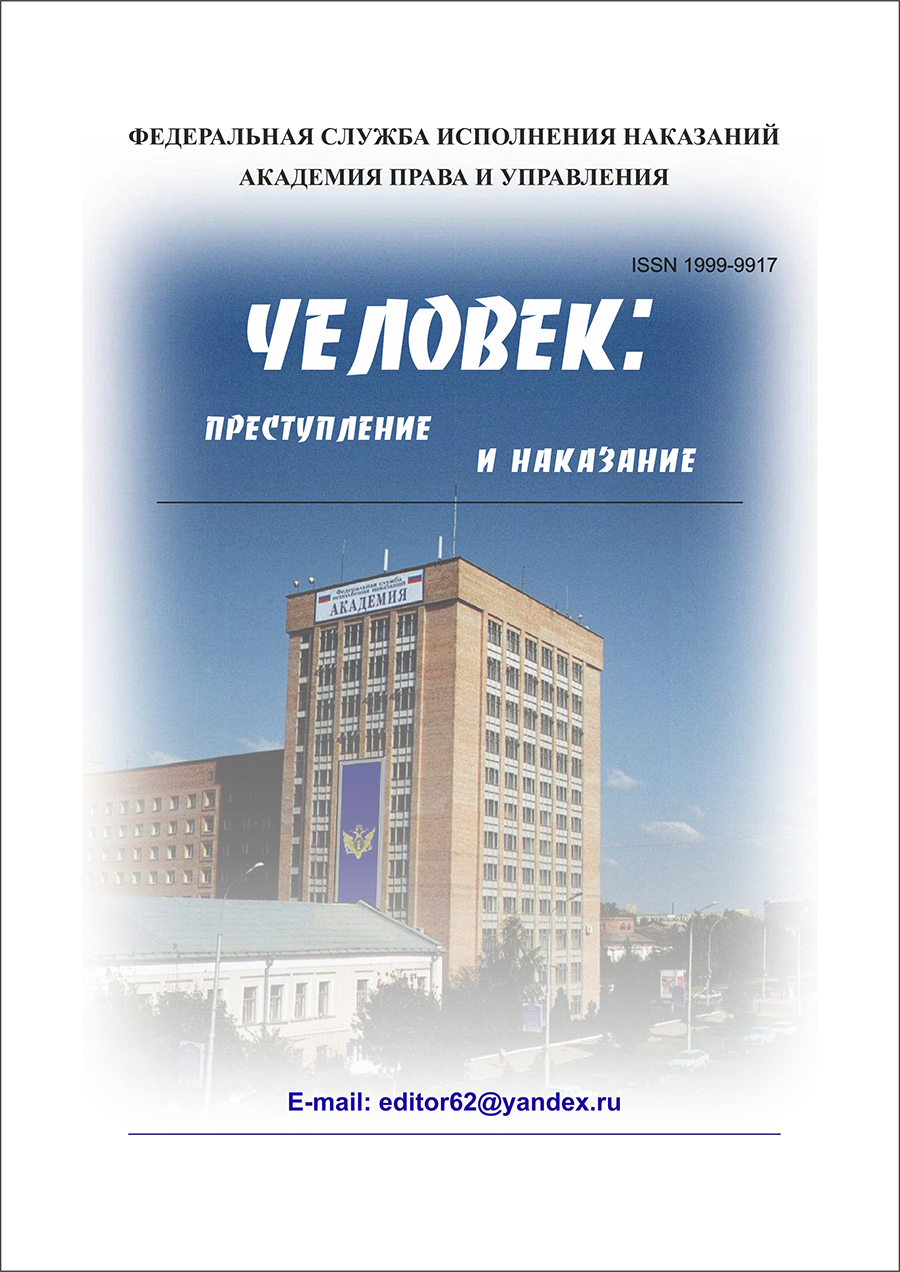Moskva, Moscow, Russian Federation
UDC 343.288
The purpose of the article is to study the so-called affect of pregnancy, which, according to the authors, can serve as a basis for excluding criminal liability. The article examines the legal nature of the affect of pregnancy as a criminal legal concept, analyzes the possibility of mental disorders in pregnant women, and the impact of such a condition on human behavior. A high-profile criminal case from Russian history, which was made public by Fyodor Mikhailovich Dostoevsky, is being considered as a practical retrospective case. In his work, the famous Russian writer examines the totality of factors taken into account by the court when making a specific court decision. Based on the studied literature and the work of Fyodor Mikhailovich and taking into account the described precedent, the authors propose to implement pregnancy of a person into criminal legislation as a circumstance excluding criminality of the act, and provide a possible list of conditions under which such an exception is possible when committing certain crimes.
pregnancy, affect, murder in a state of passion, affect of pregnancy, mitigating circumstances, circumstances excluding criminality of the act
1. Tsygankov, A. Yu. 2022, ‘Necessary defense and exceeding its limits: the prospect of legislative improvement’, Law in the Armed Forces – Military and Legal Review, iss. 10(303), pp. 84–89.
2. Tsygankov, A. Yu. 2010, ‘Enforcement of the law involving harm in the system of norms of criminal legislation’, The Russian criminological view, iss. 2, pp. 416–420.
3. Kashepov, V. P. 2004, ‘The importance of qualifying signs, mitigating and aggravating circumstances in determining the measure of criminal responsibility and punishment’, Commentary on judicial practice, iss. 9, pp. 31–37.
4. Nuretdinova, A. R. 2022, ‘Affect as a legally significant emotional state’, Symbol of Science, iss. 4-1, pp. 73–74.
5. Karteev, E. S. 2018, ‘Types of affect: a criminal-legal view’, Legal fact, iss. 36, pp. 6–9.
6. Avdeeva, E. V. 2017, ‘Criminal-legal and criminological aspects of affected murder’, The Russian judge, iss. 5, pp. 38–42.
7. Tyutyunnik, V. L., Mikhailova, O. I. & Chukhareva, N. A. 2009, ‘Psychoemotional disorders during pregnancy. The need for their correction’, RMJ, iss. 20, pp. 1386–1388.
8. ‘A simple but complicated matter. The writer's diary, 1876 n.d.’, Fyodor Dostoevsky. An anthology of life and creativity, viewed 3 November 2024, https://fedordostoevsky.ru/works/ diary/1876/10/01.
9. ‘Release of defendant Kornilova. The writer's diary, 1877 n.d.’, Fyodor Dostoevsky. An anthology of life and creativity, viewed 3 November 2024, https://fedordostoevsky.ru/works/ diary/1877/04/06.
10. Asryan, N. G. 2019, ‘Murder in a state of passion’, COLLOQUIUM-JOURNAL, iss. 8-9, pp. 18–20.
11. Sorokin, A. I. 2020, ‘Problems of qualification of murder committed in a state of passion’, Scientific Bulletin of the Orel Law Institute of the Ministry of Internal Affairs Russia named after V. V. Lukyanov, iss. 4(85), pp. 38–42.
12. Sirotkina, D. P. 2021, ‘Determinants of murder committed in a state of passion and criminological characteristics of the persons who committed it’, Actual scientific research in the modern world, iss. 10-7(78), pp. 109–112.









